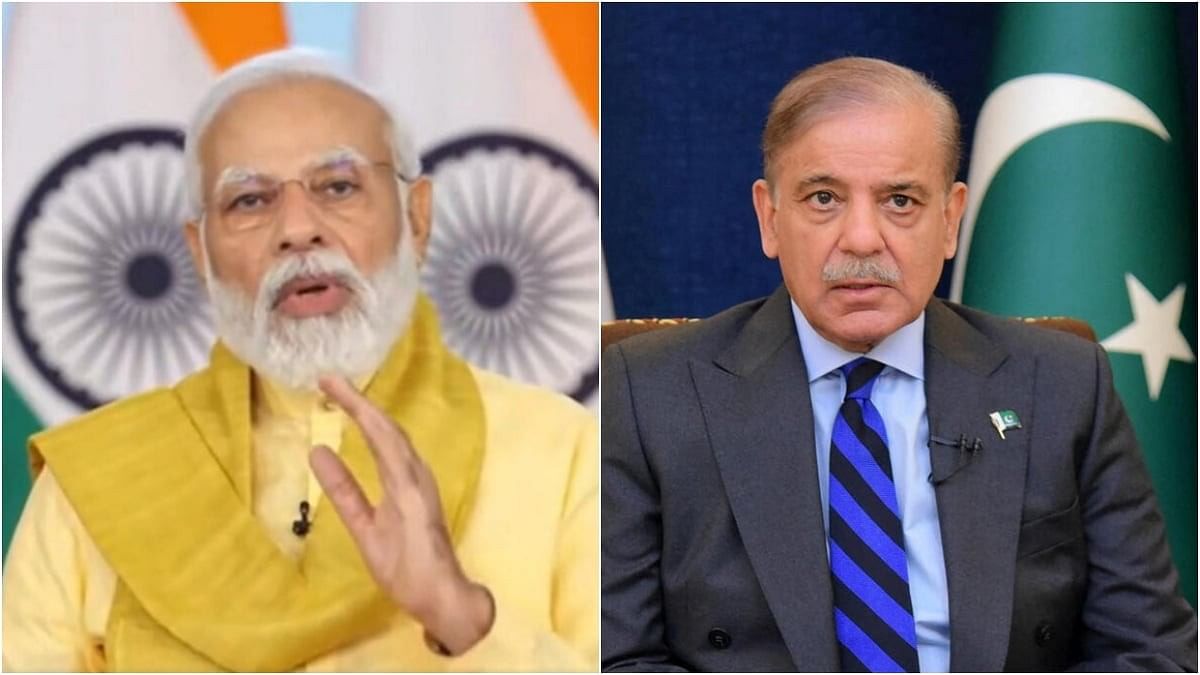
Prime Minister Narendra Modi and Shehbaz Sharif.
Credit: PTI and Reuters Photo
The messages of congratulations from Pakistan for Prime Minister Narendra Modi finally arrived a day after he was sworn in in Delhi, an event to which other leaders of South Asia were invited but not the Pakistani leadership. Leaving them out was seen in India as Modi punishing Pakistan. But Prime Minister Shehbaz Sharif may have been thankful. The optics of being another South Asian leader endorsing Modi 3.0 with his personal presence may not have played out well back home. Now, both Shehbaz Sharif and his brother, former PM Nawaz Sharif, have conveyed, through the accepted medium of X, their readiness to engage with India. The Sharifs have been open in stating that making peace with India is the only way forward for Pakistan's stability, its economic health, and its security. But Nawaz Sharif's previous efforts in 1999 and 2015 were stymied by the Pakistan Army with Kargil and Pathankot, respectively. Sharif himself was punished with removal, the first time in a military coup, and the second time by a “judicial coup”. This time, the Sharifs have been able to form the government thanks to the Army. Nawaz may have been voicing an institutional rethink by the Army when he said some days ago that Pakistan had been at fault in launching the Kargil operation in 1999 in violation of the Lahore Declaration.
That their felicitations came after a terror attack -- coinciding with Modi's glittering inauguration in Delhi -- on a bus of pilgrims in Reasi, Jammu, that killed nine people, underlined the challenges of engagement with Pakistan, even if all “stakeholders” in that country appear willing. Modi's response to Nawaz Sharif's tweet that this was the time to “seize the opportunity” to “replace hate with hope” understandably focussed on the need for “peace and security”.
The presence of a South Asian-Indian Ocean Region contingent at the inauguration signalled continuity in Modi's decade-long “Neighbourhood First” policy. It is an irony that in this time, India's relations with most of its neighbours have not improved, if not outright worsened. Delhi must know that even in countries that it has helped, such as Sri Lanka or the Maldives, India's stock is low. India's help is seen as given for buying the “loyalty” of neighbouring governments, while the ruling BJP is seen as creating hostility against neighbouring peoples, especially during elections in India. Pejoratives uttered during campaigns may be forgotten here after the election, but they are documented and remembered in great detail in the targeted countries. The BJP's demonisation of Muslims travels across borders. Blaming China and patronising political elites in the hope of gaining influence may be easy, but winning public opinion in the neighbourhood is the real deal.